Members of the Advisory Board
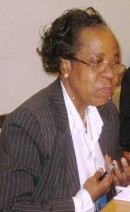 Gemma Adaba, Trinidad & Tobago
Gemma Adaba, Trinidad & Tobago
Gemma Adaba, served as ITUC Representative to the United Nations from September 1999 to September 2010. A native of Trinidad & Tobago, Ms Adaba’s trade union work began in the teaching sector, where she was an active member of the Secondary School Teachers’ Association (SSTA) in the late 1960’s. She holds a Masters' Degree in Sociology from the University of Western Ontario, Canada. She was a Doctoral Candidate in Sociology and Demography at the Free University of Brussels in Belgium.
She has been a staff member of the Brussels-based ICFTU (a predecessor organization of the ITUC) since 1980. In that capacity, she has provided research and policy support to the ITUC’s Economic and Social Policy Department on global social and gender justice issues, as well as workers’ rights, migration, development, and strategies to end poverty.
As ICFTU and later ITUC Representative to the UN, she followed the major Conferences and intergovernmental meetings of the UN on thematic areas related to social, economic, gender, migration and development policies.
Her particular focus has been their labour and gender dimensions. In this regard, she has written a number of Policy Briefs, Statements and Research Papers in the thematic areas outlined above.
Ms. Adaba has served on the Board of the North/South Institute (Canada), and is currently a Member of the International Committee for October 17th (ATD Fourth World, Paris, France). She has been a Member of the ILO Jury for the ILO’s Annual Decent Work Prize.
She has served on the Task Force of the President of the UN General Assembly for the Civil Society Hearings of the MDG+5 Summit in 2005, and the MDG+10 Summit in 2010. She has also served on the Task Force of the President of the General Assembly for the Civil Society Hearings of the High Level Dialogue on Migration and Development in 2006, and on the Advisory Group for the Civil Society Days of the annual Global Forum on Migration and Development (GFMD) in 2007 and 2008.
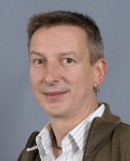
Markus Brun, Switzerland
Markus Brun was born in 1965 in Lucerne / Switzerland. He studied catholic theology in Fribourg, Strasbourg and Lucerne and concluded his studies as lic theol. He then specialized in social ethics and started at Swiss Catholic Lenten Fund (SCLF) as program officer first for francophone African countries and later for Central Africa.
In 2002 he became deputy of the director of Swiss Catholic Lenten Fund (SCLF) for development policy and heads since 2005 the advocacy and lobby department of the same organization.
He is mainly engaged in political work at national and international level around social justice, global governance, financing development and development policy.
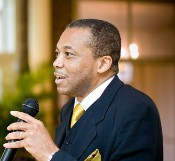
Albert Gyan, Ghana
Albert Gyan is a social advocate with several years of management and advocacy experience in Africa, Europe, and the United States. He works predominately with international Non-Governmental Organizations. During his tenure as coordinator of Kairos Europa in Brussels, he facilitated the launch in Accra of the Jubilee 2000 Africa Debt Cancellation Campaign and subsequently contributed to events from Kampala to Dakar, and from Cologne to Genoa. He has served as the United Nations Representative for Church World Service, a consultant to the World Council of Churches and a representative of the Anglican Consultative Council to the United Nations.
In those capacities he worked on a wide range of socioeconomic justice issues at the European Parliament, the U.S. Congress and the United Nations. He served as Co-chair of the UN Ecumenical NGO Working Group, Vice-chair to the UN NGO Committee on Social Development; and an executive member of the UN NGO Committee on Financing for Development.
Currently Albert Gyan runs a consultancy in the New York Metropolitan area, providing services on development finance and social entrepreneurship. He sits on the management and advisory boards of a couple of social and commercial ventures in Ghana. Albert is a graduate of University of Cape Coast, Ghana and did his postgraduate work in Economics at the Free University of Berlin, Germany.
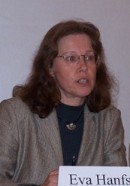
Eva Hanfstaengl, Germany
Eva Hanfstaengl works as policy officer at Bread for the World in Germany. Prior to that she worked as consultant on issues around global governance, financing for development, external debt and social development policy. Between 2009 and 2010 she worked for the United Nations, the Department "Division for Social Policy and Development" to do a study on the impact of global crises on civil society organizations. In 2008 she assisted the Global Social Economy Group, to coordinate the advocacy work of international non-governmental organizations at the United Nations. From 1999 to 2004 she worked as Senior Policy Officer for United Nations, International Monetary Fund and World Bank related issues at the headquarter of CIDSE, an international umbrella of 16 Catholic development organizations.
Before that she has been working for 5 yeras in the Churches Development Service (KED) at the headquarters of the Evangelical Church in Germany. She studied geography, German literature, pedagogics and theology.
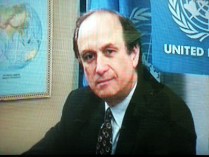
Barry M. Herman, USA
Barry M. Herman (Ph.D., University of Michigan) is Visiting Senior Fellow at the Graduate Program in International Affairs of The New School in New York. He is also a member of the Board of Directors of Global Integrity, a research NGO based in Washington that works with independent scholars and investigative reporters on assessing laws, institutions and practices to improve governance and limit corruption in developed and developing countries. In addition, from 2004 to 2009 he co-chaired the Task Force on Debt Restructuring and Sovereign Bankruptcy at the Initiative for Policy Dialogue at Columbia University, which resulted in the volume edited with José Antonio Ocampo and Shari Spiegel, Overcoming Developing Country Debt Crises. He completed almost 30 years in the United Nations Secretariat in 2005, the last two years of which were as Senior Advisor in the United Nations Financing for Development Office in the Department of Economic and Social Affairs (DESA).
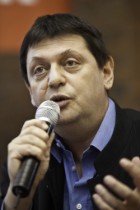
David Hillman, United Kindom
David Hillman is Coordinator of Stamp Out Poverty, a network of more than 40 UK non-governmental organizations, including Oxfam, Save the Children and Christian Aid, working on innovative sources of finance for development. Stamp Out Poverty has been working since 2002 on opening up political space for new funding initiatives to finance the Millennium Development Goals, working with President Chirac’s special commission, that developed UNITAID (launched in 2006) to combat HIV/AIDS, malaria and TB. Most recently he has been instrumental in the launch of the Robin Hood Tax campaign, which has brought the need for greater taxation of the finance sector to a mass audience. As campaign coordinator of Landmine Action (1996 – 2000) he worked for the achievement of the Ottawa Treaty and UK legislation to ban the manufacture, transfer, sale and military use of landmines. As UK arm of the International Campaign to Ban Landmines, he represented the organization for the presentation of the Nobel Peace Prize in 1998.
In 2000, he joined Drop the Debt as partner responsible for campaigns and mobilization, playing a role in the cancellation of debt of the world’s poorest countries. He studied at UCS in London and is a graduate of the University of Kent at Canterbury.
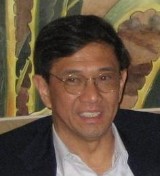
Manuel Montes
Manuel Montes is the Senior Advisor on Finance and Development at the South Centre. Prior to this position, he was Chief of Development Strategies and before that Chief of Policy Analysis and Development at United Nations Department for Economic and Social Affairs (DESA). He has also served as the Regional Programme Coordinator of UNDP’s Asia Pacific Trade and Investment Initiative which seeks to assist developing countries in Asia Pacific incorporate poverty reduction objectives in their trade policies and negotiations. From 1995 to 2005 he was Programme Officer for International Economic Policy at the Ford Foundation in New York. From 1989 to 1999 he was Senior Fellow and Coordinator for economics studies at the East-West Centre in Honolulu. From 1981 to 1989 he was Associate Professor of Economics at the University of The Philippines.
He has been a visiting scholar at the Institute for Developing Economies in Tokyo, at the United Nations University/World Institute for Development Economics Research (UNU/IWDER) in Helsinki, and at the Institute for Southeast Asian Studies (ISEAS). His most recent publication is Poverty and Well-Being in Asia during the Transition (Palgrave-Macmillan, 2003). Mr. Montes held the Central Bank Money and Banking Chair at the University of the Philippines from 1984 to 1991. He received a Ph.D. in Economics from Stanford University.

Bhumika Muchala, Indonesia
Bhumika Muchhala is policy analyst at Third World Network in New York where she focuses on development finance and development policy. Before that she worked for Third World Network in Geneva and at the Bank Information Center in Washington (BIC) as the Associate for the IMF Program. Previously, Bhumika was at the Woodrow Wilson International Center for Scholars, where she conceptualized and organized large-scale policy forums and conferences on development economics issues. Bhumika also has significant experience in the international labor rights movement in both Indonesia and the U.S., with Oxfam International, United Students Against Sweatshops (USAS) and the Worker’s Rights Consortium (WRC). As Oxfam's Indonesia field researcher, she analyzed the links between sourcing practices and labor rights violations. As USAS' international programs coordinator, she organized corporate accountability campaigns for a network of over 200 university chapters. She also conducted a self-designed field research program to develop a framework for factory investigations and to build alliances and workshop programs with the Indonesian labor movement.
Bhumika is originally from Bombay, India, and was raised in Jakarta, Indonesia. She moved to the United States in 1996. She has a Master of Science degree in International Development from the London School of Economics, and a B.A. in Literary and Cultural Studies and Political Science from Carnegie Mellon University.
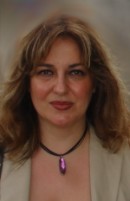
Isabel Ortiz, USA, Spain
Isabel Ortiz is Associate Director of Policy and Strategy at UNICEF. She has over 20 years experience working in more than 30 countries in various areas of social and economic development. From 2005-2009 she was Senior Advisor at the United Nations Department of Economic and Social Affairs/ DESA, and from 1995-2003, at the Asian Development Bank, where she was founding member of its Poverty Reduction Unit and manager of ADB’s Social Protection Strategy, signed by 59 countries.
From 1993-95 she was a lecturer and a researcher at the Department of International Economics of the High-Level Council of Scientific Research in Madrid; and from 1991-92 worked at the European Commission in Brussels.
She has also contributed to organizations such as Joseph Stiglitz's Initiative for Policy Dialogue and the Friedrich Ebert Foundation. Isabel has a Ph.D. from the London School of Economics and numerous publications, among them, Social Protection in Asia and the Pacific (2001), Social Policy in National Development Strategies (2008), Child Poverty and Inequality (2012) and A Recovery for All (2012).
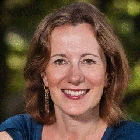
MARINA PONTI, Italy, member of Social Watch
Marina Ponti is following current UN negotiations for post 2015 and Financing to Development and writing policy briefs and updates for Social Watch, Global Policy Watch and other civil society organizations. She is also a member of the Board of Global Policy Forum.
Prior, Ponti served as Chief Operating Officer of Catapult, the first crowd-funding platform for girls’ and women’s rights and development. Previously, Ponti has worked for the United Nations Development Programme for eleven years holding several advocacy, partnership and policy positions. In particular, Ponti was instrumental in the set up of the UN Millennium Campaign in her role as Deputy Director, in the roll out of the overall outreach and partnership strategy and in the launch of several national Millennium Development Goals campaigns in Europe and Latin America. She also played a pivotal role as Director for Europe in the set up of the regional office and in leading MDGs advocacy campaigns in Spain, Portugal, Italy, France and Germany.
Before joining the United Nations Development Programme, Marina Ponti was Head of Advocacy and External Relations at Mani Tese, an Italian development NGO, where she led coalitions and advocacy initiatives on several development issues (Social Watch, Jubilee 2000, Tobin Tax, Stop Dumping, etc.) from 1996 to 2002. Marina Ponti has participated extensively at international conferences, including the UN Summits Conferences. Moreover, she has addressed the European, Austrian, French, Irish, Italian, Portuguese and Spanish Parliaments. Ponti has also been a lecturer on development and human rights in several institutions including the Bard College (USA), the Universities of Milan, Rome, Verona, Pavia, Padua, Brescia and the United Nations Training Centre in Turin.
As an expert on development issues, Marina has published several articles on leading magazines, online publications and blogs on matters such as the Millennium Development Goals, aid effectiveness, social development, food price volatility, debt-relief, human rights, Child labor, globalization, trade, Common Agricultural Policy, inequality and gender. Mrs. Ponti graduated in Political Science from the University of Milan with a thesis on “The Economic and Social Council of the United Nations as an instrument for development cooperation”. She also completed the INSEAD Global Management training.

Esther Samraj, India, Germany
Esther Samraj is currently persuing a Ph.D in Philosophy at the University in Leipzig. She also submitted her desertation on gender studies to Mother Theresa University in India. She was a member of the Womens’ Working Group in Hermansburg and in the Evangelical Mission in Hamburg. She has conducted many seminars on women in India in the Church of Hannover and in the Evangelical Lutheran Mission.
From 2002 to 2007 she was the women's reginal secretary in the Tamil Evangelical Lutheran Church in India. From 2003 to 2007 she was head of a childrens’ home ‘Jungsheim’ in Tranquebar in India.
From 1992 and 1993 Esther lectured at Tranquebar Bishop Manikam Lutheran College in Porayar in India. She holds a Master of Arts (MA) in English Literature, a Bachelor of Education(B.Ed) and a Master of Philosophy (M.Phil), and taught at school in Tamilnadu und Karnataka in India.
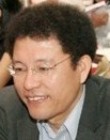
Anselmo Seong Hoon LEE, Korea
Anselmo LEE is Executive Director of the Korea Human Rights Foundation (KHRF) and Chair of the Policy Committee of the Global Call to Action Against Poverty (GCAP)-Korea. He has been teaching about global governance, human rights and development at Graduate School of NGOs Studies at the Kyunghee University. He was in charge of organizing the first Civil G20 Dialogue in October 2010 as Chair of the GCAP-Korea Working Group on G20. Currently, he is involved in the preparation of the civil society forum prior to the 4th OECD High-level Forum on Aid Effectiveness to be held in Busan, South Korea from 29. Nov. to 1. Dec. 2011 in cooperation with Better Aid, an international civil society platform on aid and development issues at the OECD. Previously he worked as civil servant for the National Human Rights Commission of Korea (NHRCK) as Director General in charge of policy and education (4.2008-3.2010).
He also served as Executive Director of Asian Forum for Human Rights and Development (FORUM-ASIA), a Bangkok-based regional human right NGO (2005-4.2008) after working in Geneva for 8 years (1997-2004) as Secretary General of International Catholic Movement for Intellectual and Cultural Affairs (ICMICA)-Pax Romana, a global network of Catholic professionals and intellectuals committed to social justice and peace. He was also involved with the Conference of NGOs in Consultative Status with the UN (CONGO) as Chair of the Working Group on Asia (2000-2002) and Vice-President (2002-2004).
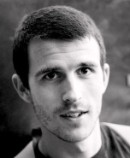
Matt Simonds, USA, France
Matt Simonds is currently the liaison officer for the platform of civil society organizations that sits in the OECD Working Party on Aid Effectiveness (WP-Eff), BetterAid in Paris/ France. He is housed in the office of the Trade Union Advisory Committee to the OECD (TUAC). His responsibilities in the capacity have been to facilitate and strengthen the advocacy work of the platform primarily through liaising on a regular basis with the OECD secretariat and other stakeholders of the WP-Eff and to maintain a knowledge base for the platform on the activities, programs and priorities of the official body. Prior to this he worked at the United Nations office of the International Trade Union Confederation (ITUC) where as a policy associate he followed several UN processes, most notably the UN Financing for Development Process. He received a master’s degree in international development from the New School in New York and his bachelor’s degree from New York University.
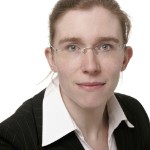
Verena Winkler, Germany
Verena Winkler is currently working with the Infopoint for Global Justice (Infostelle für Klimagerechtigkeit) in Hamburg. From 2008 to 2011 she was policy advisor with Eurostep, an autonomous network of European Development NGOs based in Brussels. Before that she worked for the European Parliament Development Committee. Verena is experienced with legal and institutional structures for EU development and foreign policy, the role of the EU in global governance, especially regarding UN & G20, FFD processes and the financial crisis. Her expertise includes a vast knowledge on institutional matters for policy making. She holds a diploma in political science specialising in international relations from University of Hamburg.